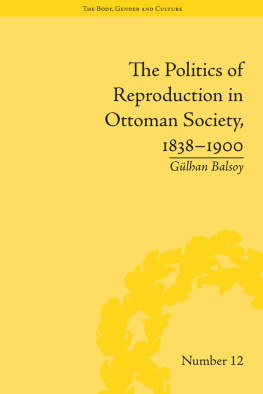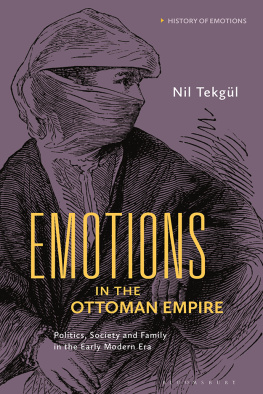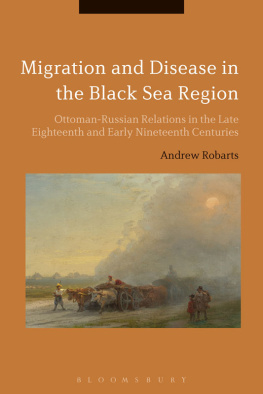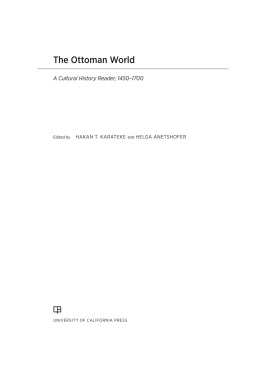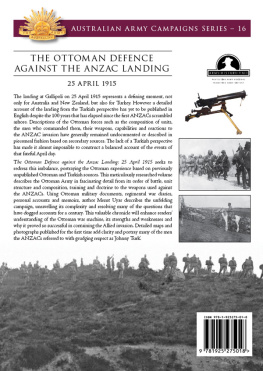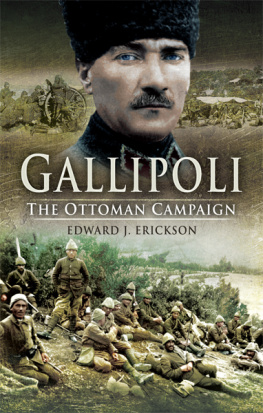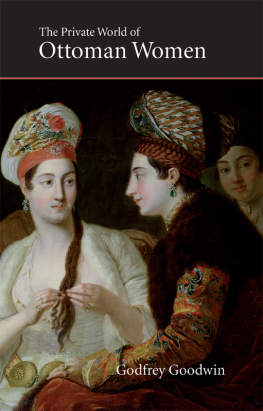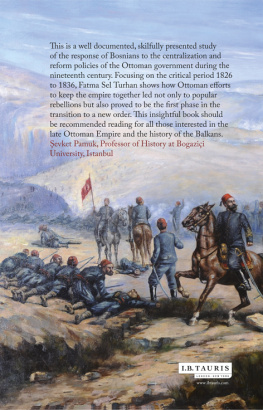THE POLITICS OF REPRODUCTION IN
OTTOMAN SOCIETY, 18381900
THE BODY, GENDER AND CULTURE
Series Editor: Lynn Botelho
TITLES IN THIS SERIES
1 Courtly Indian Women in Late Imperial India
Angma Dey Jhala
2 Paracelsuss Theory of Embodiment: Conception and Gestation in Early Modern Europe
Amy Eisen Cislo
3 The Prostitutes Body: Rewriting Prostitution in Victorian Britain
Nina Attwood
4 Old Age and Disease in Early Modern Medicine
Daniel Schfer
5 The Life of Madame Necker: Sin, Redemption and the Parisian Salon
Sonja Boon
6 Stays and Body Image in London: The Staymaking Trade, 16801810
Lynn Sorge-English
7 Prostitution and Eighteenth-Century Culture: Sex, Commerce and Morality
Ann Lewis and Markman Ellis (eds)
8 The Aboriginal Male in the Enlightenment World
Shino Konishi
9 Anatomy and the Organization of Knowledge, 15001850
Matthew Landers and Brian Muoz (eds)
10 Blake, Gender and Culture
Helen P. Bruder and Tristanne J. Connolly (eds)
11 Age and Identity in Eighteenth-Century England
Helen Yallop
FORTHCOMING TITLES
British Masculinity and the YMCA, 18441914
Geoff Spurr
The Study of Anatomy in Britain, 17001900
Fiona Hutton
Interpreting Sexual Violence, 16601800
Anne Greenfield (ed.)
Women, Agency and the Law, 13001700
Bronach Kane and Fiona Williamson (eds)
Sex, Identity and Hermaphrodites in Iberia, 15001800
Richard Cleminson and Francisco Vzquez Garca
The English Execution Narrative, 12001700
Katherine Royer
THE POLITICS OF REPRODUCTION IN OTTOMAN SOCIETY, 18381900
BY
Glhan Balsoy
First published 2013 by Pickering & Chatto (Publishers) Limited
Published 2016 by Routledge
Park Square, Milton Park, Abingdon, Oxon OX14 4RN
711 Third Avenue, New York, NY 10017, USA
Routledge is an imprint of the Taylor & Francis Group, an informa business
Taylor & Francis 2013
Glhan Balsoy 2013
To the best of the Publishers knowledge every effort has been made to contact relevant copyright holders and to clear any relevant copyright issues.
Any omissions that come to their attention will be remedied in future editions.
All rights reserved, including those of translation into foreign languages. No part of this book may be reprinted or reproduced or utilised in any form or by any electronic, mechanical, or other means, now known or hereafter invented, including photocopying and recording, or in any information storage or retrieval system, without permission in writing from the publishers.
Notice:
Product or corporate names may be trademarks or registered trademarks, and are used only for identification and explanation without intent to infringe.
BRITISH LIBRARY CATALOGUING IN PUBLICATION DATA
Balsoy, Gulhan.
The politics of reproduction in Ottoman society, 18381900. (The body, gender and culture)
1. Turkey Population policy History 19th century. 2. Human reproduction Government policy Turkey History 19th century. 3. Fertility, Human Political aspects Turkey History 19th century.
I. Title II. Series
304.660956109034-dc23
ISBN-13: 978-1-84893-325-5 (hbk)
Typeset by Pickering & Chatto (Publishers) Limited
CONTENTS
To my parents Yldz and Metin
This book is the outcome of a very long process that started with my going to Binghamton University for my PhD. It was structured in three different countries: the US, Turkey and Germany, and was possible thanks to the generosity of many individuals and institutions that supported me in different ways. First among them is my late advisor Donald Quataert. I will be indebted to him forever for his constant support throughout my graduate education and beyond. His inspiration, intellectual generosity, encouragement and great patience guided me in the long journey of the research and writing stages of this work. I wish he had lived to see the publication of this book. Rfaat Ali Abou-El-Haj has been a great mentor with his eye-opening questions, forcing me to thoroughly reconsider my ideas, and intellectual stimulation during my PhD study. Since then, he has always been available whenever I needed him. At Binghamton University I was also lucky to be the student of Jean Quataert who contributed significantly to my development as a historian of women and gender. She has played an important role in the very foundational formation of this work.
During the research and writing stages of this work I received the financial and moral support of several institutions. Archival research for this work was conducted under the auspices of the Research Centre for Anatolian Civilizations. I want to express my gratitude for the residential fellowship I received, and especially to my fellows at the centre with whom I shared the very early findings of my research. I am also indebted to the post-doc fellowship provided by Europe in the Middle East The Middle East in Europe (EUME) programme, thanks to which I had the chance to revise and edit my dissertation and turn it into a book manuscript. I thank my fellow colleagues for their constructive criticism which helped and encouraged me to improve the manuscript. I would also like to thank the staff of the library of Centre for Islamic Studies (ISAM) who provided a very accommodating environment to me for a very long time, first when I was writing my dissertation and then later when I was turning it into a book manuscript.
It would have been very difficult to complete this study without the support of my friends. I am indebted to Selim Karahasanolu, Nalan Turna, Nazan Maksudyan, Tuba Demirci and Betl Argt for their help and friendship during the initial research and structure of this work. I particularly want to thank Baak Tu and Dilek Akyaln who have been more than dear friends. Besides sharing the difficulties of working and writing, they always helped me to find my way whenever I felt lost. Our conversations were not only heartening but they contributed to the shaping of my ideas too. Zeynep Trkylmaz has been a major support especially during my year in Berlin, not only with her fondness, but also with her sharp way of thinking. Burak Onaran read the dissertation version of this work thoroughly, and his comments have been very helpful with my revision. I also want to thank Seval ahin, who brought many great pieces of Ottoman literature to my attention.
This monograph would never have been completed without the full and unconditional love of my family. My family, Mine Erkaya, Il, Oya, Serkan Ayman, Serpil, Yeliz, Tuna and Ahmet Balsoy have all supported me in their own ways. I am grateful to them. I owe my love for reading and for books to my parents Yldz and Metin. It is thanks to their unconditional support and affection that I ever found the courage to go after my curiosities and interests. When I became a mother myself I understood more profoundly how great a luxury it is to be the child of such wonderful parents. It is to them that I dedicate this work.
My greatest gratitude is to Ali and Hseyin, the two most important people in my life. Although we have very different interests and different approaches to many things including history, my continuous dialogue and discussions with Ali on literature, politics, history, and of course usually on nothing provides me with the biggest motivation and inspiration to continue my work. I thank him deeply. Finally, despite all the difficulties of raising a child and conducting research, each and every day since his birth I feel how lucky I am to have Hseyin. His curiosity and imagination, never-ending questions and total lack of interest in my academic endeavours is the very joy of my life.

